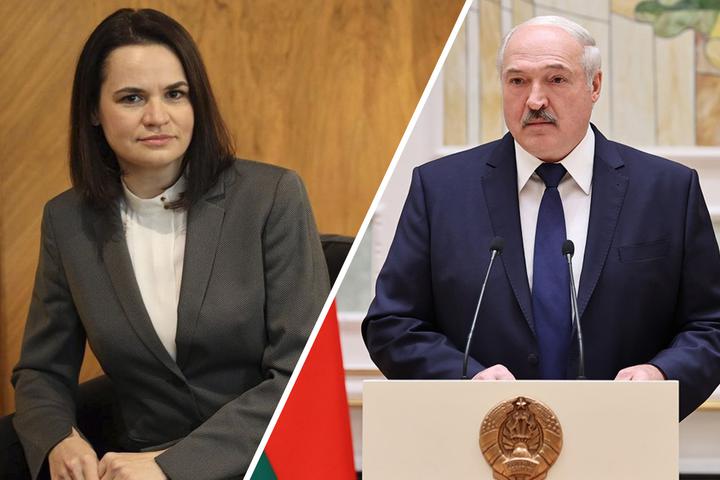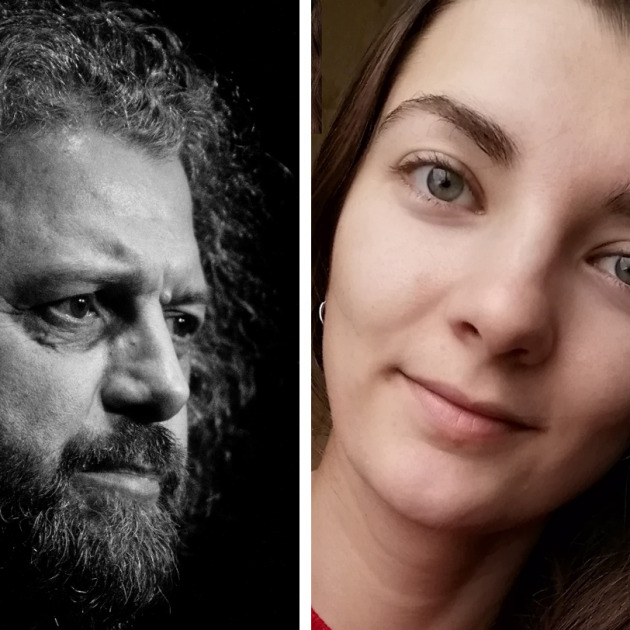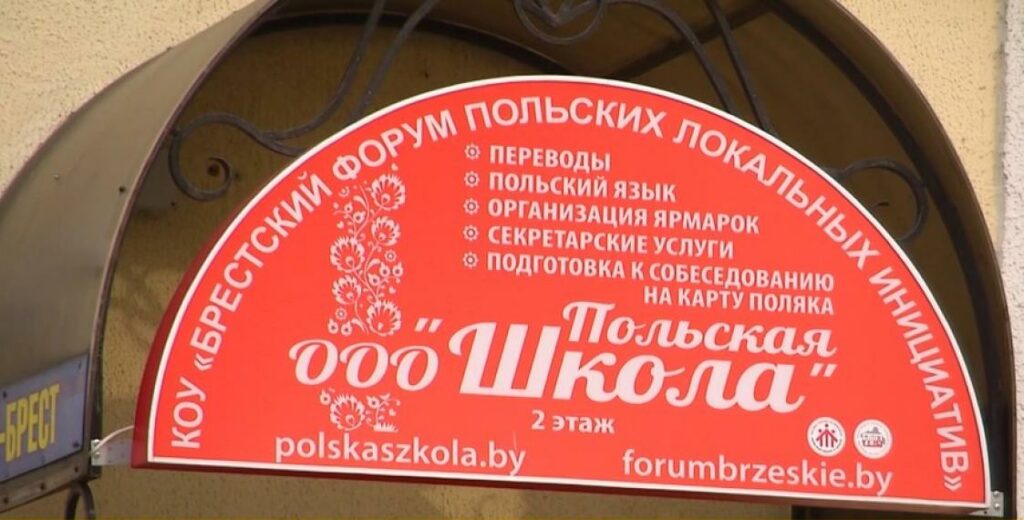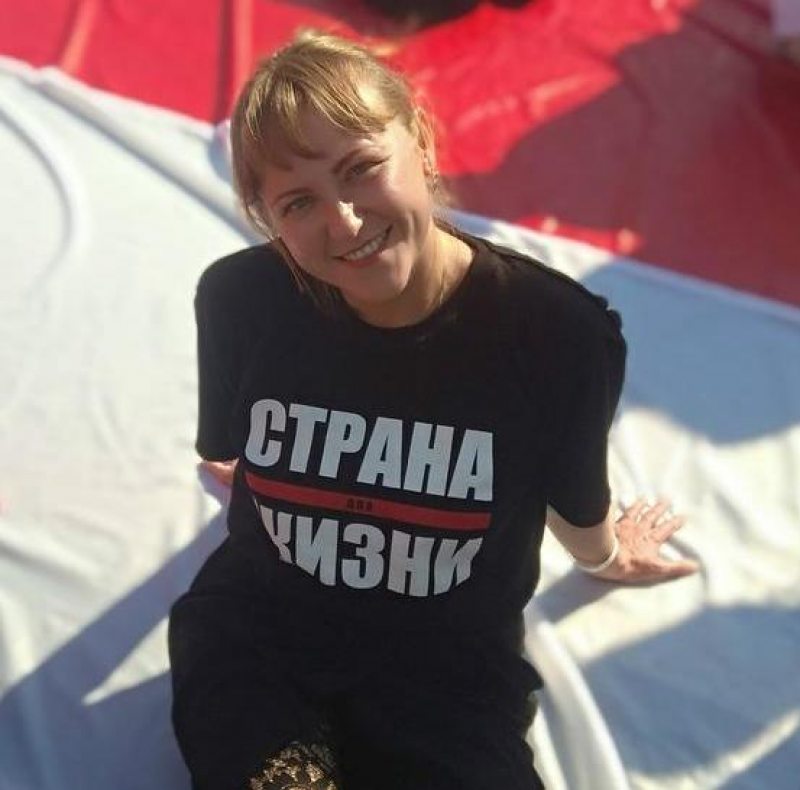Belarusians vote for negotiations with the authorities; in Norway, Belarusian poets received a freedom of speech award; the authorities want to close the Polish School in Brest; punishment cell in Zhodzina prison is hell on earth
18 March 2021 | Voice of Belarus

Tsikhanouskaya urged Belarusians to vote for negotiations with the authorities
Sviatlana Tsikhanouskaya and the united democratic forces of Belarus announced a nationwide vote to initiate negotiations with the authorities on how to overcome the crisis in Belarus. Large-scale voting will solve several problems.
- Firstly, it will demonstrate to the world community that the political crisis is escalating and requires an urgent solution.
- Secondly, it will help build up international pressure significantly.
- Thirdly, it will give back to Belarusians a sense of unity, majority, strength and superiority on the streets.
- Finally, it will stop the civil conflict and will show the inevitability of negotiations as the only peaceful solution to the crisis.
Voting is organized on the Voice platform, thanks to which evidence of election fraud was collected during the 2020 presidential elections in Belarus. Data provided by the Voice platform are trusted by the EU, the USA and the OSCE. The first results will be announced by Freedom Day [an unofficial holiday celebrating the independence of Belarus] on 25 March 2021.
The US and EU missions to the OSCE and the UN supported Tsikhanouskaya’s initiative. They are ready to organize a discussion platform, act as mediators and force the regime to negotiate in order to hold new transparent elections this year.
In less than 12 hours, more than 400,000 people voted in favor of negotiations on the Voice platform.
In Norway, Belarusian poets received a freedom of speech award

The Norwegian Authors’ Union presented their Freedom of Speech Award to Belarusian poets Dzmitry Strotsau and Hanna Kamar. The poets took part in peaceful protests and were imprisoned for that. Award organizers said they would like to split the prize between the two authors, “each of whom represents a generation of activists who have made a great effort and who are constantly at the center of the struggle for freedom of speech in Belarus”.
Polish School in Brest may be closed

Source: euroradio
The Brest Prosecutor General’s office filed a lawsuit to liquidate the Polish School as part of a criminal case on deliberate actions aimed at rehabilitating Nazism. School director Hanna Panishava was arrested after her business trip to Poland. Inspections were carried out by the authorities at the Polish educational centers in Hrodna, Baranavichy and Vaukavysk.
The criminal case was started in connection with the celebration of the Day of the Cursed Soldiers by the Polish organizations in Brest on 28 February. The Ministry of Foreign Affairs of Belarus reacted by expelling three Polish consuls in Brest and Hrodna from Belarus. In response, the Ministry of Foreign Affairs of Poland announced the expulsion of three Belarusian consuls.
Andrzej Pisalnik, secretary of the main board of the Union of Poles in Belarus, said that if Polish schools are liquidated, the regime’s actions could be viewed as cultural and educational genocide against the Polish minority.
The punishment cell is hell on earth

Source: Viasna Human Rights Center
Volha Paulava spoke about the inhumane conditions in which political prisoners are held in Belarusian prisons. Volha graduated from the Belarusian State Medical University and was the chief cosmetologist at one of the largest cosmetic companies in Belarus. After the elections, she took part in protests and tried to provide medical help to peaceful protesters. On 9 August 2020, she was wounded by a stun grenade. She was arrested four times. The last time a criminal case was opened against her, she was sentenced to three years of probation called “home prison”.
In December 2020, Volha spent 17 days in a punishment cell in the Zhodzina prison. During this stay, she went on a hunger strike for 10 days. She ended up in a punishment cell for not greeting the guards. According to Volha, she was kept in a small room, approximately 1.5 meters by 2.5 meters, with poor ventilation. The punishment cell was located in the basement, and there was almost no daylight. But the artificial lighting was never switched off in there.
In the center of the cell, there was a small, uncomfortable metal chair which was fixed in concrete to the floor. There was a sink, a step and a toilet basin. There was a video camera pointing at the toilet. The bunk bed was raised to the wall in the daytime, so Volha sat on the floor on her rubber slippers so she would not freeze. There were a lot of cockroaches in prison cells, and there were mice in the punishment cell.
Pen and paper for writing letters and books are not allowed in the punishment cell. Receiving parcels from outside is also prohibited for those spending time in those cells.
“The punishment cell is hell on earth. In fact, if you have poor imagination, you can go crazy in there. You can only save yourself by imagining something.”
During the hunger strike in the punishment cell, Paulava became so weak that she lay on the concrete floor all the time, and a prison employee had to carry her to a meeting with her lawyer. After the hunger strike, Paulava ended up in the prison’s medical unit.